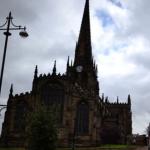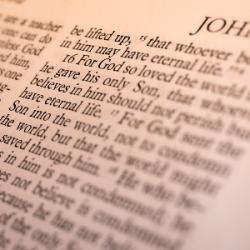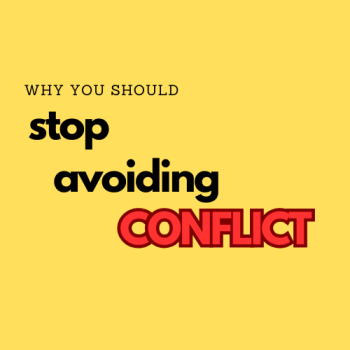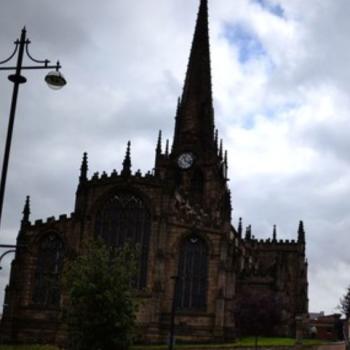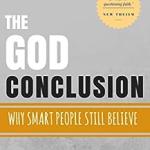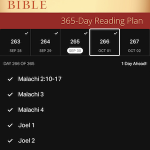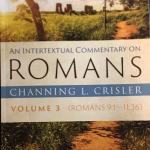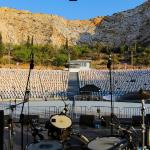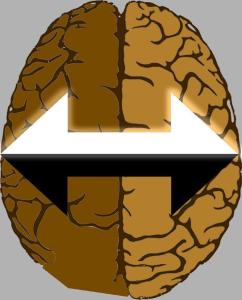
Cross-Conversion
Conversion studies began in the 19th century in a very religious culture. As a result, most “converts” being studied already had a religious background when they “converted.” What they essentially did was to commit to something more formal than what they already believed or practiced. Similarly, early deconversion studies took place in the 20th century, and largely relied on studying what happened when a person left one religion or denomination for another.
As a result, both conversion and deconversion research had their genesis in the study of “cross-conversion,” a lateral move in which one becomes differently religious than they were. As a sample in cross-conversion, I offer you the details of an interview I did with one such person.
From Christianity to Jehovah’s Witness to Christianity
Some years ago, I had the privilege of interviewing former Jehovah’s Witness, Edward Andrews. Andrews is now a Christian Apologist, author, and publisher. Like so many people, Andrews struggle with Christianity was the pain and suffering in the world. As a result of his pursuit of truth, however, Andrews has gone through some pain of his own.
Andrews talks about his journey of faith:
“I started out in the Baptist Church when I was really young, because my grandmother was Baptist. But I fell away because I couldn’t cope with the idea of why there is so much evil in the world. Why God would allow pain and suffering. So I left Christianity.
“I left it after I had gone to several churches and asked several preachers why God would do such a thing, and I really felt that they didn’t give me a very good answer at all. There was no depth to them.
“Ironically, my mom was studying with Jehovah’s Witnesses, and they came by the house. And so I actually became a Jehovah’s Witness and was one for 20 or 25 years of my life.
“But as a Jehovah’s Witness, I decided to test my faith like the Bereans tested everything that the Apostle Paul said. And so, I came to have some issues with some of the things.
“For ten years, from 1996 to 2005, I studied, on average, 6 to 7 a day for 7 days a week. I was literally OCD about understanding that I was on the right path. I didn’t study Witness literature, I studied academic books. I went through over two-thousand books over that time. And to take it even a step further, I signed up for the Bachelors Admission program at Liberty University, a Baptist institution, and went through that which pretty much knocked a lot of things out of the saddle.
“Thereafter I went for the Masters of Divinity, and at that point I didn’t continue at the Kingdom Hall and left the Jehovah’s Witness organization. And now that I’ve continued on toward my PhD, I’m of Wesleyan Faith.
“So it’s really been a need to defend my faith and me wanting to know the truth. I’ll go wherever the truth lies. I study to establish truth.”
Deconversion Crisis
Deconverts frequently cite the loss of community, family, and friends as a traumatic consequence of exiting their religion. Whereas Andrews remained religious, his decision to cross-convert came with similar results:
“It is a very difficult thing to leave the Jehovah’s Witness organization. When you’re in there, you are really isolated from other people in the world. Not so much that you’re on a compound, but (Jehovah’s Witnesses) do not consider other people in the world to be their friends. They’re just merely associates.
“So when I walked away from that, I had 200 to 300 friends in my cellphone and I couldn’t call any of them. I had no friends. I lost my wife. I lost everything.
“And that’s how serious I am about finding something that’s true and setting myself on that, and studying it and studying it and finding out ‘what is the truth behind this?’
“So my past has led me to be an Apologist for the Bible.”
Andrews’ journey resembles deconversion in another important respect: he prized truth-seeking over authority. Religious people, especially those who are raised religious, tend to take their truth from authoritative sources without placing those sources under scrutiny. Andrews somehow came to value allegiance to truth to such a degree that he was willing to sacrifice his entire social life and marriage in order to be aligned with truth.
Andrews is now a prolific author of over 10 books, including The Complete Guide to Bible Translation, Introduction to Bible Difficulties, Your Guide for Defending the Bible, and Misrepresenting Jesus, a book attempting to refute Bart Ehrman’s Misquoting Jesus.



